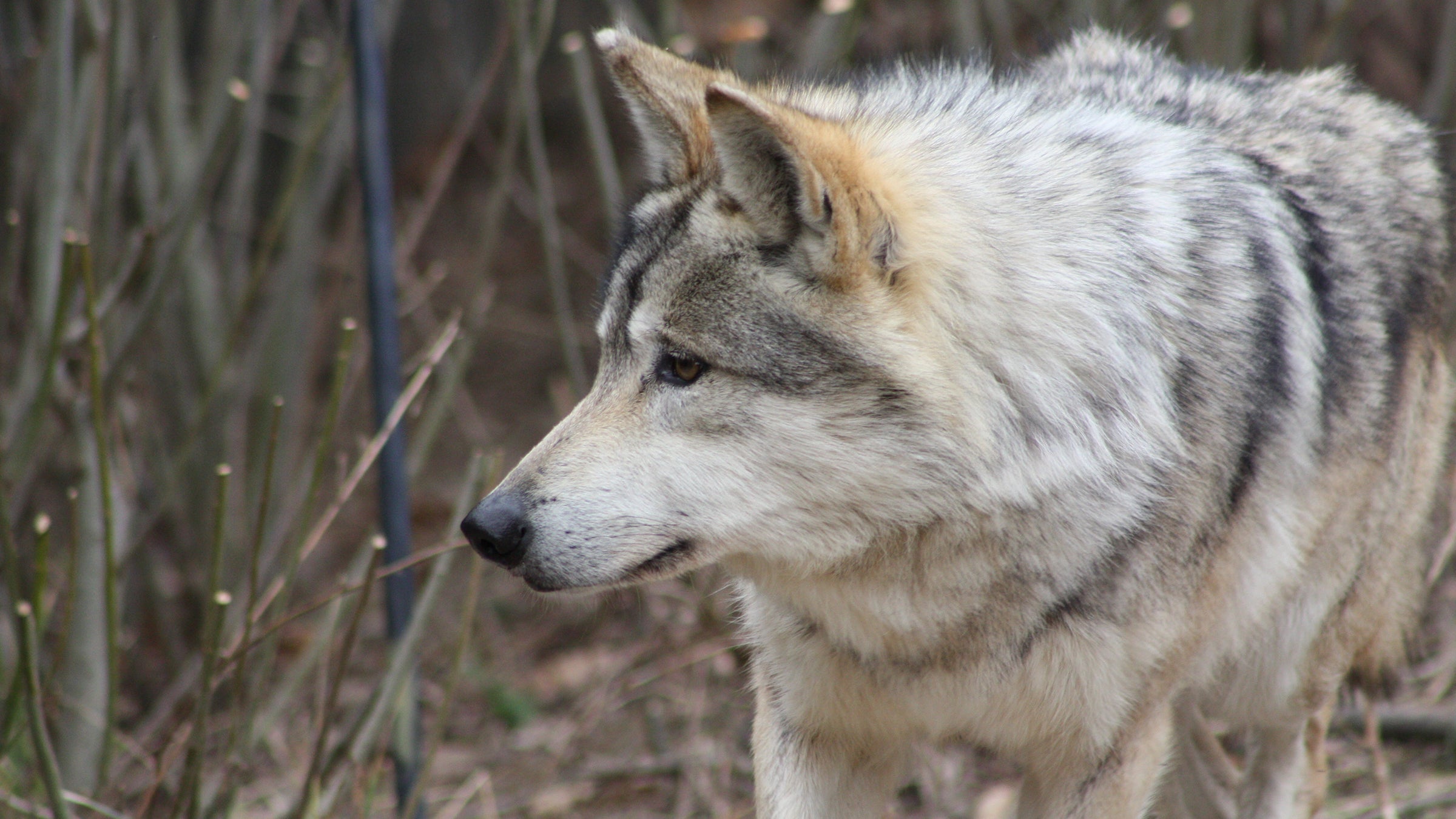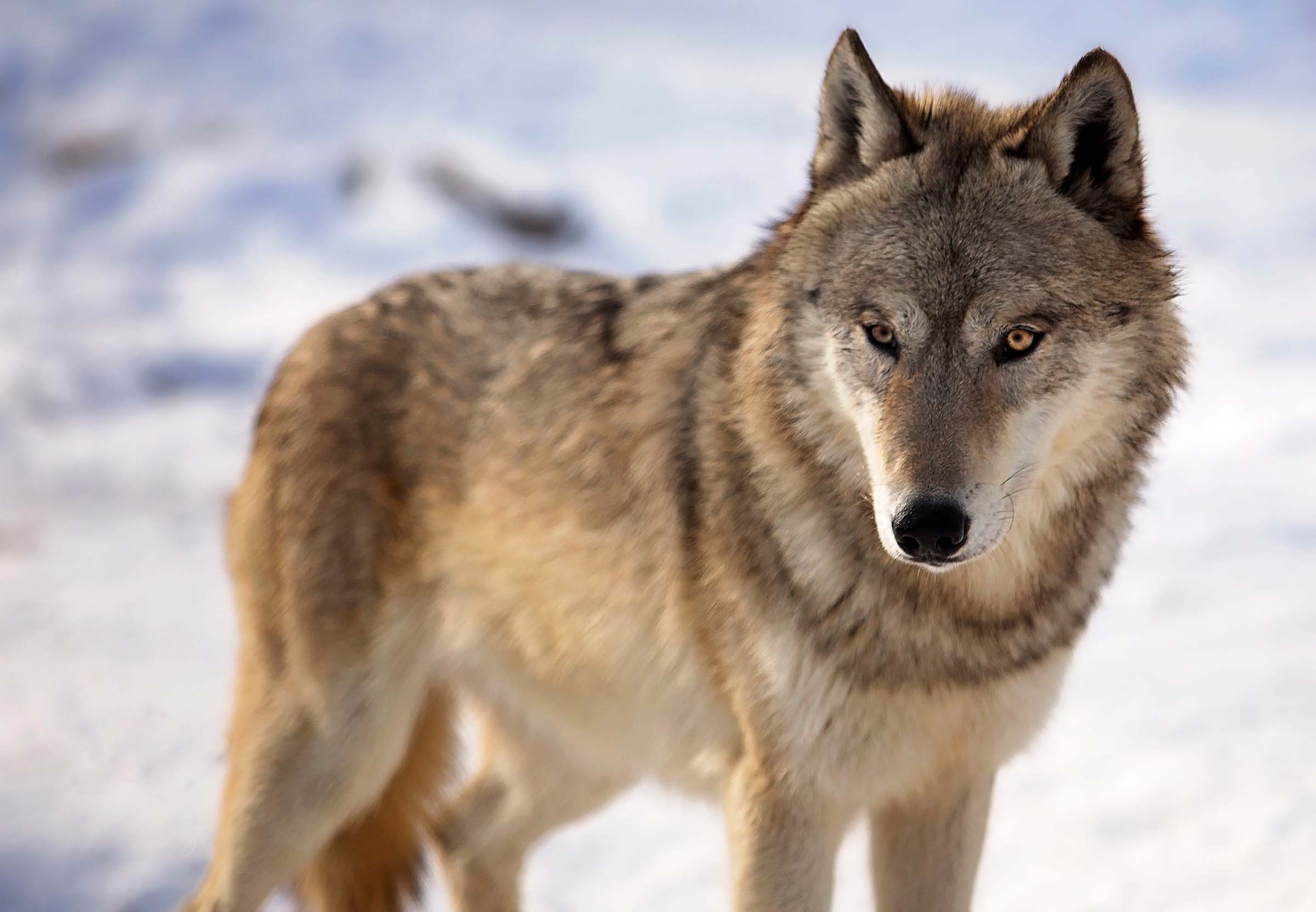Wisconsin Officials Want to Double Their Wolf Hunt. Conservationists Are Suing to Shut it Down.

(Photo: amandarichard421)
A group of wildlife advocates is suing Wisconsin to halt the state’s planned wolf hunt this fall and overturn a state law mandating an annual season on the predators, after a board of political appointees more than doubled the hunt quota proposed by the state’s Department of Natural Resources (DNR).
In a suit filed in state circuit court, the plaintiffs—a coalition of four environmental organizations, including Wisconsin’s Great Lakes Wildlife Alliance, California’s Project Coyote, and a local conservationist—said that in raising the 130-wolf limit proposed by the DNR to 300, Wisconsin’s Natural Resources Board had “disregarded science.” They pointed to this February’s chaotic wolf hunt, which the plaintiffs claim may have caused the deaths of up to 30 percent of the state’s estimated 1,000 wolves.
Under a law passed under former Republican governor Scott Walker, Wisconsin is required to hold a wolf hunt as long as the species is not protected as endangered by federal or state law. Gray wolves toggled in and out of protected status for years due to court battles between the federal government and activists before the Trump administration moved to strip them of protections last November, a decision that became final in January.
Originally, wildlife officials in Wisconsin had not planned on hosting a wolf hunt this spring, instead postponing it to fall as they attempted to develop a science-based plan for the season. However, a state court ordered the department to schedule the hunt in February after hunter advocacy group Hunter Nation sued. Among other objections, the group accused the state of “intentionally delaying the wolf harvest to give radical anti-hunting groups time to block the delisting and stop a hunt altogether.”
Organized on two weeks’ notice, the resulting hunt was messy. The state set the quota for the hunt at 200 animals; the state’s Chippewa tribes, which have opposed the wolf hunt, claimed 81 of those through treaty rights. That left 119 wolves that hunters could take. Against that relatively paltry quota, Wisconsin sold 1,547 tags—roughly 13 per animal. Unlike in some previous seasons, the state allowed hound hunters to pursue wolves beginning on the first day of the season, rather than letting non-canine hunters and trappers—less likely to be successful—go first.
Almost immediately, the state lost control of the hunt. Within a day and a half, hunters had killed 117 wolves—roughly the number killed by dogless hunters and trappers in two months during the 2012 season, when hounds were banned. Making matters worse, state law required the DNR to give 24 hours notice before closing the hunt. By the time it was over, hunters had taken 216 wolves, 82 percent more than the quota.
In the wake of the overshoot, state wildlife officials defended their actions, saying that the department had reacted as quickly as it could to shut down the wolf hunting season when the overkill became obvious. In a press conference afterward, Keith Warnke, the department’s administrator of parks, land, and wildlife, said that the department would consider population estimates as it began to plan for the fall season.

But when DNR scientists proposed lowering the fall hunt’s quota to 130 wolves, the board, a politically-appointed body dominated by Walker’s picks, overruled them, more than doubling the quota to 300 instead. Explaining its decision, board member Greg Kazmierski claimed the body couldn’t go against the 1999 management plan adopted by the DNR, which he said called for reducing the state’s wolf population to 350.
“We need to show we’re trying to move toward that goal,” Kazmierski said. “If we don’t, we can throw out all the management plans in the state because we don’t need them.” When an attorney for the DNR told the board that number had been intended as a population minimum, the majority of the board insisted it was a goal.
In their lawsuit, the groups suing the state called the proceeding “a parody of reasoned deliberation” and alleged that the board did not have the authority to overrule DNR’s recommendations on how the wolf hunt should be conducted. Furthermore, it said, Frederick Prehn, the board’s chair, is serving illegally: Prehn’s term ended in May, but he has refused to step down until his proposed replacement, Sandra Naas, is confirmed. If Naas takes her seat, Walker’s successor, Democrat Tony Evers, would control a majority of the seats on the board; however, the state senate has so far refused to hold a hearing on the nominee.
The lawsuit also asks the court to strike down the 2011 law that obligates the DNR to hold a wolf hunt, which the plaintiffs say strips the department of its ability to decide whether or not the wolf population is strong enough to survive a season.